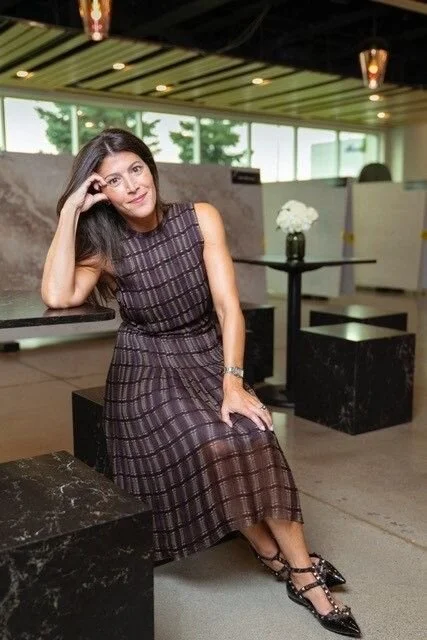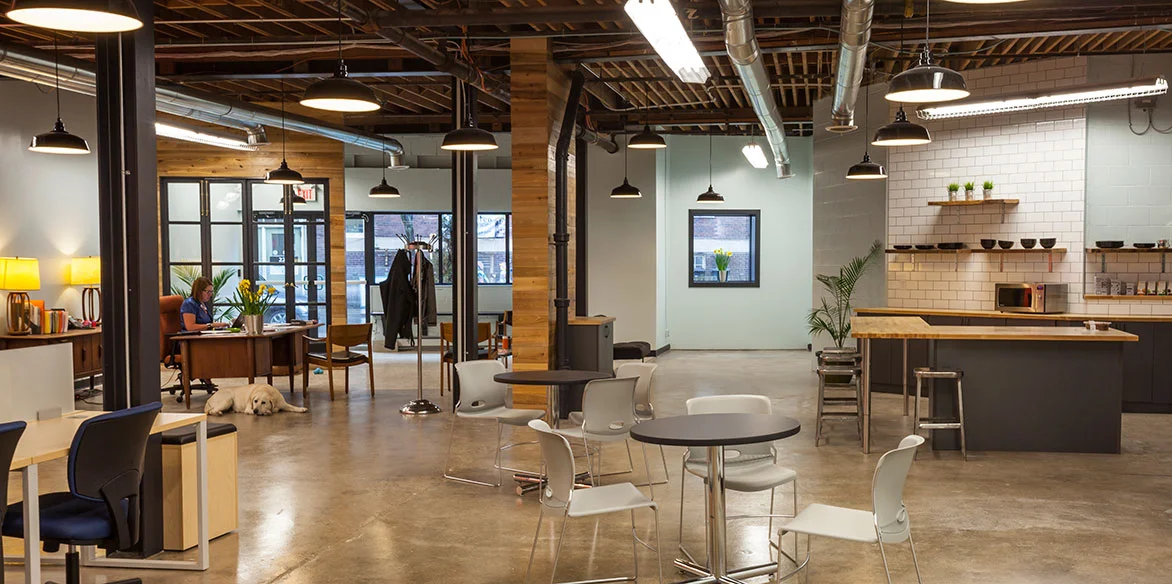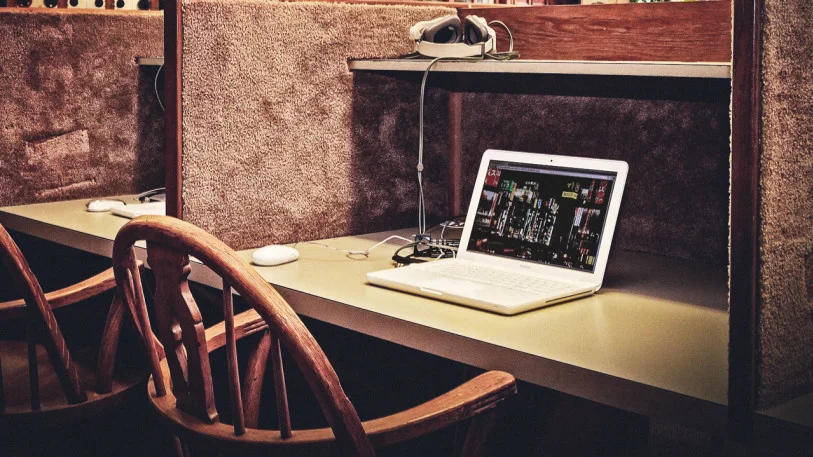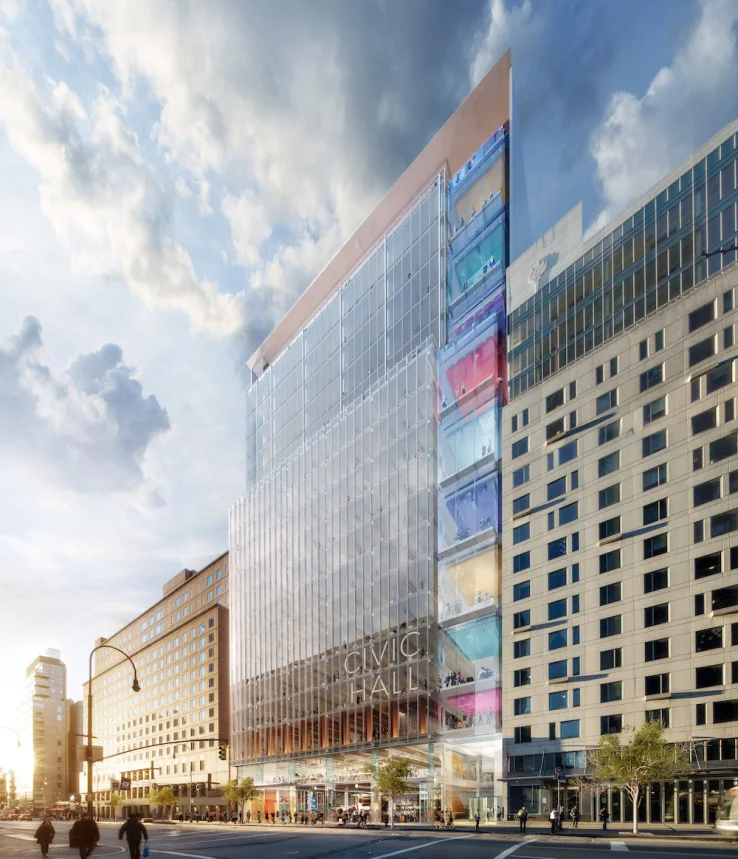Entrepreneurs, small business owners and freelancers who used to call everything from cafes to airports their office now have a significantly better workplace option: shared work spaces. According to reports, co-working spaces or shared work spaces across the world have reported having 50% more members than two years ago. These innovative work spaces such as IndiQube host tens to hundreds of different companies across industries, irrespective of the size.
Why co-working spaces are on the rise
The market demand for co-working space in Toronto is relatively new, but has been growing steadily over the past 10 years, spurring an increase in supply.
Co-working space refers to a shared work environment that a group of people from different employers share. Users of co-working space are often self-employed, frequent travellers, and work in either small start-up companies or with smaller non-profit organizations. The individuals and organizations who rent co-working space also vary across numerous industries.
Co-working space for women The Riveter is launching in Seattle to build community and challenge ‘bro-working’
The Riveter has raised $565,000 of a $600,000 seed round to open a flagship facility in Seattle’s Capitol Hill neighborhood. A soft launch is planned for mid-April and The Riveter will officially open its doors May 1. The space will have nine offices, room for 120 collaborative desks, a fitness studio, meditation room, retail space, and other amenities. Daily yoga classes, wellness seminars, and community events are key to Nelson and Peltola’s vision.
WeWork and Industrious bet big on coworking in Charlotte
WeWork, an international coworking giant, signed a lease for 46,000 square feet on the 8th and 9th floor of 615 South College Street (currently under construction). WeWork Stonewall Station hopes to have 960+ members. By my estimate, that’s more members than we currently have working at all coworking spaces in Charlotte combined right now.
At the same time, Industrious, a large national coworking player, signed a lease for 21,465 square feet on the 27th floor of the Bank of America Plaza building on Trade and Tryon.
Inside the 'co-working retreats' where digital nomads travel the world to work and party
More Americans are working remotely than ever before. With a little help from a new tourism startup, some of these digital nomads are waking up in private villas in Bali, snacking on fruits from the local market, and bathing in outdoor showers before starting the workday.
SNAPCHAT’S REAL ESTATE STRATEGY MAKES CORPORATE HQS SEEM LIKE DINOSAURS
The pendulum has been swinging in recent years with many big corporations, including Best Buy, IBM and AT&T, opting for more of a results-only work environment where employees do not have to physically be at work, according to Purdue University Krannert School of Management associate professor of management Bradley Alge.
The benefits include workers being able to balance work and family and being flexible about where they can work. More than 70% of employees of corporations would be willing to trade easier commutes for better office environments, according to CBRE research.
Six Tools I Can’t Live Without As A Digital Nomad
Working remotely sounds like fun (and it is!), but it can be a logistical nightmare sometimes. Occasionally, something as simple as your phone dying while you’re on the go can set off a chain reaction: your plans for that afternoon go sideways, your productivity sinks, your brain gets overwhelmed, you’re already straining your budget–what are you even doing here in the first place!?
Cloud Room: A Modern Shared Working Space in Seattle
Cloud Room is a private, member’s only, shared working environment in Seattle that’s the product of a joint collaboration between Graham Baba Architects and Brian Paquette Interiors who oversaw the design of the co-working space. While it’s an office for people to work in, it doesn’t feel boring or sterile like many workspaces do, especially some of the co-working concepts that have popped up.
How the SoftBank-WeWork Deal Highlights a Flexible Office Trend
Burgeoning interest and investment in flexible workspaces is pushing a small corner of the commercial real estate market into the corporate mainstream, and drawing one top executive from Asia to help expand his company's U.S. operations.
Media reports say Japan's SoftBank, with expertise in information technology and telecommunications, is close to investing more than $3 billion in the U.S. office-sharing upstart WeWork. This would mark a major vote of confidence in the business and the sector overall.
Servcorp, an Australia-based rival to WeWork, believes the market is ripe for expansion and is sending its chief operating officer to New York with a goal of doubling U.S. operations, 22 locations, in about five years.
Knotel raises $25M to expand its “headquarters as a service” approach to office space
Founded in 2015, the company offers what co-founder and CEO Amol Sarva described as “headquarters as a service” — a flexible office space that can be customized for each tenant while also growing or shrinking as needed.
This might sound like it’s addressing the same need as WeWork and other coworking spaces, but Sarva (who was previously co-founder at Virgin Mobile) argued that Knotel is “not coworking.” It’s not just a way to rent out a few desks, but rather to build your company’s office without the risks of a long-term lease.
“It’s a culture-coded environment — it’s your spot,” Sarva said.
This should appeal to startups, where headcount might double or triple one year, and then drop again the next. (I’ve certainly visited startups that were clearly trying to squeeze way too many people into their office, and others who’d leased way more space than they needed and tried to fill things up by renting to others).
NYC Mayor Bill de Blasio shows off designs for planned tech hub
New York City Mayor Bill de Blasio and his team have revealed the designs for the 250,000-square foot Union Square Tech Hub.
The hub, which was first announced in December, will include 58,000 square feet of “fluid space” for startups and a 36,500-square foot tech training center. (Partners in the training program include the New York City Foundation for Computer Science Education, General Assembly, Per Scholas, FedCap, Code to Work and Coalition for Queens.)
The anchor tenant will be Civic Hall — a 1,000-member work and event space that focuses on what founder and CEO Andrew Rasiej said is “the idea that technology can be used to support the public good.
De Blasio unveiled the designs at an event this afternoon at the New York City headquarters of adtech company AppNexus, where he also talked about his hopes for the space.
Unilever promotes innovation with new co-working space
The Unilever Foundry and Padang & Co today have launched Level3, a co-working space that is set to promote innovation.
In a press statement to Marketing magazine, the company said the space is supposed to redefine the traditional concept of work spaces and bring together Unilever, startups, and entrepreneurs to encourage innovation and create new partnerships that deliver real and meaningful business impact. Built within the Unilever regional headquarters in Singapore, the work space provides proximity to Unilever brands and functions, and access to existing Unilever Foundry programmes.
How Remote Work Is Changing And What It Means For Your Future
Remote work has been a small part of the employment landscape throughout history. Thanks to the internet, those opportunities are now abundant, spurring many new companies to successfully connect solopreneurs to work projects. Some provide a general marketplace and others focus on specific disciplines; 99designs, for example, matches design projects with graphic designers. Even LinkedIn got in on the act last year with ProFinder – which is designed to link freelancers with leads.
But the new trend that’s exciting me and is growing exponentially is the area of remote work that’s not for freelancers; it’s for employees. There’s no arguing that the 9-to-5, 40-hour work week, with your entire team located near you, is gone. And it’s not coming back. Today, it is more likely that you work on a team where some or even all of your colleagues work remotely.
Coworking Is Not A Fad, It’s a Revolutionary Concept
When it comes to coworking, there are various opinions out there. There are those who love it and swear by it, those who are skeptical about it, those who don’t understand it, and many more in between.
However, fact remains that coworking has enabled a revolutionary change in the way people work and the way we design workspaces. Though a few years ago many would have argued that coworking was merely a ‘fad’ that was bound to disappear, it’s become evident that coworking is much more than that.
This is clear in the way coworking in and out of itself has evolved and how it’s attracting large businesses into the mix.
In the below article, Kristin Donaldson, Marketing Associate at Work Better, delves a little into the history of coworking, why it feels like such a familiar and nostalgic concept, why coworking really is much more than a buzzword, and where she sees the future of coworking going.
The 7 best coworking spaces in New York
A new generation of creative workers expects more than bland ‘business centers’ and sterile ‘serviced office space’ setups. They’d much rather park their laptops at a growing range of shared spaces designed to boost productivity and a sense of community. Powered by new models that integrate the perks of private clubs and services usually reserved for large corporations, New York coworking spaces are flourishing – offering options for every industry, taste, and budget. Here’s our essential guide to where to pull up a chair.
This Pilot Workspace is Replacing Community Managers with a Hotel-Style Concierge
Just two weeks ago, ATLAS Workbase opened the doors of its first workspace location in Seattle. Though the project just recently launched, it’s been in the works for over 3 years now. Bill Sechter, CEO of ATLAS Workbase, shared the process of developing the space and how ATLAS is hoping to differentiate itself from other workspace operators.
“It’s becoming very evident to me as we have gone through our soft launch that we are truly not a coworking space; we are working on trying to define the category we are in.”
The days of coworking being exclusively open and shared workspace environments are long gone. Nonetheless, the core offering of these spaces remains the same: a great place to work and a highly-engaged community. For Bill Sechter, this wasn’t enough.
“Basically we created ATLAS as a marriage between coworking (or what it’s evolved into) and the concept of work and play.”
The Industrious Formula For Productive Coworking Spaces
Industrious is a coworking space, but corporate clients are welcome, too. Across 12 U.S. locations, fresh upstarts sit alongside teams from companies like Mashable, Instacart, Pinterest and Spotify. Cofounder and CEO Jamie Hodari wanted to offer shared amenities and social time to a diverse mix of teams — and help them actually get some work done. With thoughtful spaces and attentive service, he’s hoping to make it easier for companies to give employees a productive place to work.
Hodari first saw the need for a space like this when, starting a previous company, he realized how embarrassed he was to bring important partners back to his coworking space. “The Ikea Foundation funded the vast majority of our operations, and I was meeting with the president,” he says. “At the very last second, I realized I didn't feel comfortable having him hold a meeting at the workspace.” He moved the meeting to a coffee shop and started thinking about how coworking could be improved.
More than one million people will work in coworking spaces in 2017
More coworking spaces, more members… These basic forecasts for 2017 are straightforward. The interesting findings of the Global Coworking Survey, compared with previous years, are once more shown in detail. Things are looking somewhat more restrained in the new year from the perspective of freelance and entrepreneur members. On the other hand, things are strongly looking up for members who are company employees. Coworking spaces are planning yet more expansion. As options multiply, though, members are also switching to new coworking spaces more often. And half of them care very little about Donald Trump being in the White House - for the other half, the dominant sentiment is dread.
What Makes Coworking Spaces Attractive for Startups
When coworking spaces first came on the scene, they met some very basic needs for entrepreneurs and their teams. They provided another option for those who could not afford to independently lease or purchase office space under typically long term contracts. These hive-like spaces were often bare bones and humble, but they did the job. They helped startups move out of garages and basements into real office spaces.
While this created a much needed legitimacy, needs have changed and the folks who run coworking spaces have done an amazing job of rising to the challenge of meeting the new customer needs. If you haven’t looked into the coworking spaces that are local to you, please do so. You will be amazed at the communities being formed and the good that is being done. For startups in particular, these things are really exciting.
Brooklyn’s A/D/O Co-Working Space Is Building a Utopia for Creatives of All Kinds
“One man’s utopia is another man’s dystopia,” said British design critic Alice Rawsthorn two weekends ago at an opening festival for A/D/O, the latest creative co-working space to launch in New York City. What unites the widely varying examples of utopian visions throughout history, said Rawsthorn, is a simple and empowering definition for design: “Design is an agent of change, which can help us to make sense of what is happening and turn it to our advantage.”
That baseline certainly seems to be the driving force at A/D/O, a multifaceted space whose ambitious setup is best characterized, much like its moniker, with the help of a few backslashes. Backed by the automotive company MINI, the design workspace/accelerator/lecture hall/gallery/restaurant houses many resources in a 23,000-square-foot former warehouse in Greenpoint, Brooklyn’s Industrial Business Zone—and promises to do things differently.

























